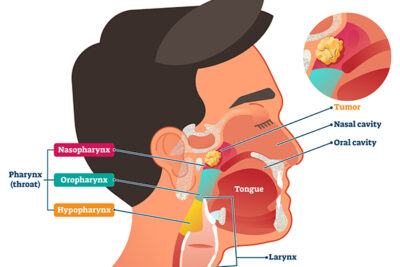Pediatric Nasopharyngeal Carcinoma Atlanta, GA
Nasopharyngeal carcinoma (NPC) is a rare form of cancer that occurs in the nasopharynx, which is located at the back of the nasal cavity and upper throat. While this condition is uncommon, it is more likely to be diagnosed in teenagers than in younger children. Early detection of pediatric nasopharyngeal carcinoma in Atlanta can be challenging due to the absence of unique symptoms. If left untreated, this aggressive cancer may spread to other parts of the body.
What Causes Nasopharyngeal Carcinoma in Children?
The exact cause of nasopharyngeal carcinoma in children is not fully understood. However, research has linked the Epstein-Barr virus (EBV)—a common type of herpesvirus—to the development of this cancer. The relationship between EBV and nasopharyngeal cancer highlights the importance of monitoring children’s health for related symptoms.
Symptoms of Nasopharyngeal Carcinoma in Children
Children with nasopharyngeal carcinoma may experience the following symptoms:
- Frequent nosebleeds
- Blocked nasal passages or persistent nasal discharge
- Swollen or enlarged lymph nodes in the neck and throat
- Frequent ear infections or hearing difficulties
- Sore throat or voice changes
If your child is experiencing one or more of these symptoms, it is essential to consult a healthcare professional specializing in pediatric nasopharyngeal carcinoma and pediatric thyroid cancer in Atlanta for further evaluation.
Diagnosing Nasopharyngeal Carcinoma in Children
Diagnosis typically involves several tests to confirm the presence of the cancer and determine its severity. Some common diagnostic methods include:
- Blood Tests: Used to detect antibodies linked to the Epstein-Barr virus.
- Nasal Endoscopy: A thin, flexible scope is utilized to examine the nasopharynx closely.
- Imaging Tests: Techniques such as MRI, CT scans, or PET scans are employed to locate and assess the tumor.
- Biopsy: A small tissue sample is taken from the affected area and analyzed for the presence of cancer cells.
Accessing specialized care for children with nasopharyngeal carcinoma in Atlanta ensures prompt and accurate diagnosis.
Treatment Options for Pediatric Nasopharyngeal Carcinoma
The management of pediatric nasopharyngeal carcinoma treatment in Atlanta often involves a combination of therapies tailored to the child’s age, health, and stage of cancer. Treatment methods include:
- Radiation Therapy: Directs high-energy rays at the tumor to destroy cancer cells.
- Brachytherapy: Delivers radiation close to the tumor through implanted devices.
- Chemotherapy: Uses medication, either orally or intravenously, to kill cancer cells throughout the body.
- Targeted Therapy: Focuses on specific molecular changes in cancer cells to inhibit their growth.
- Surgery: Removes cancerous lymph nodes or residual tumors if necessary.
Experienced specialists in the treatment of pediatric nasopharyngeal carcinoma in Atlanta collaborate to create an individualized treatment plan aimed at improving outcomes.
Expert Care for Pediatric Nasopharyngeal Carcinoma in Atlanta, GA
Pediatric nasopharyngeal carcinoma in Atlanta, GA, is a rare but serious cancer that requires specialized care. Early detection and treatment are essential for the best outcomes. Symptoms like frequent nosebleeds, blocked nasal passages, and swollen lymph nodes should not be ignored. Our experienced team offers comprehensive diagnostic and treatment options tailored to your child’s needs. Contact us today for expert care and support.
FAQ’s About Pediatric Nasopharyngeal Carcinoma in Atlanta, GA
What are the signs of nasopharyngeal carcinoma in kids?
Signs of pediatric nasopharyngeal carcinoma in Atlanta include persistent nasal congestion, nosebleeds, ear problems, and swelling in the neck. If your child shows these symptoms, consult a specialist for an accurate diagnosis and treatment plan.
How long does treatment for childhood Non-Hodgkin Lymphoma last?
Treatment duration for childhood non-Hodgkin lymphoma depends on the cancer type and stage. Pediatric nasopharyngeal carcinoma treatment in Atlanta typically includes a combination of therapies, lasting several months to ensure effective results.
Who treats nasopharyngeal cancer in children in Atlanta?
Our board-certified ENT pediatric specialists in Atlanta offer comprehensive care for children with nasopharyngeal carcinoma, combining expert knowledge with advanced treatments customized to meet your child’s needs. Contact our clinic for expert diagnosis and management.
What should I expect during my child’s Nasopharyngeal Carcinoma treatment?
Kid’s nasopharyngeal carcinoma treatment in Atlanta may involve surgery, radiation, or chemotherapy. Our team works closely with families to develop personalized care plans, ensuring the best outcomes for your child’s health. Schedule a consultation with us today!


